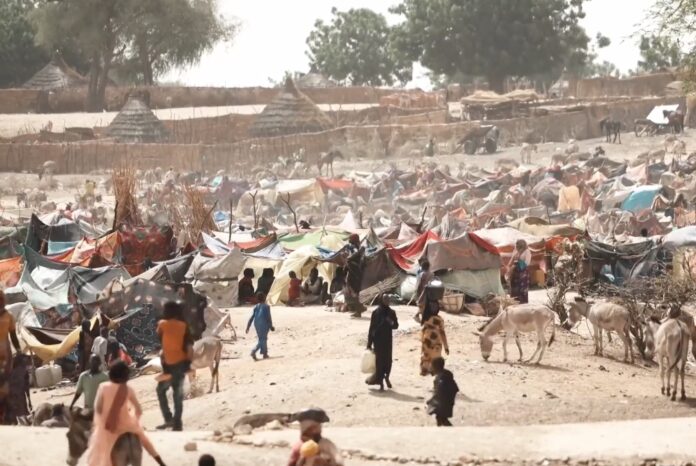
As Sudan’s civil war presses into its third year, a horrifying 13 million people are displaced, 25 million people are in urgent need of humanitarian assistance, and up to 150,000 people have been killed.
The conflict between two rival military groups, the Rapid Support Forces (RSF) and Sudanese Armed Forces (SAF), is exacerbating existing famine and environmental damage in a war fuelled by natural resource exploitation.
Climate change contributed to this conflict, and this conflict is contributing to climate change.
Terrible weather conditions, reduced seed quality, and a lack of rain caused many Sudanese farmers to migrate to cities in search of work. This has only increased desertification and resource scarcity, resulting in armed conflicts over the control of crops and water.
Farmers who migrated to cities had traditional methods of managing desertification, such as planting gum arabic trees, practices now declining due to extreme weather and increased violence.
These trees, the source of a crucial ingredient in a range of everyday products, are currently being looted by the RSF to fuel the war, thus further contributing to desertification and degradation.
Middle East Eye reported that a staggering 70% of the world’s gum arabic supply comes from Sudan, with a recent UN report saying $14.6m worth of the supply was looted by the RSF – an accusation the military group denies.
But looting gum arabic trees is only half the environmental degradation taking place.
Relentless and continuous gold mining is further destroying the land, damaging health, and funding weaponry to fuel the conflict.
Both militaries, the RSF and the SAF, are accused of funnelling an obscene amount of gold to the UAE and Egypt in return for weaponry and military assistance.
Sudan filed a case against the UAE at the ICJ in March, accusing the country of breaching the Genocide Convention by supporting the RSF, known for its widespread sexual violence against civilian women and children.
The UAE strongly opposes the ICJ case, calling it “nothing more than a cynical publicity stunt”, and said they will seek immediate dismissal.
Despite this, Sudanese activists call for a boycott of the UAE, including gold and Emirati-funded institutions.
This fight over gold resources existed between the military factions before the civil war began, and is a main driver of the conflict itself. Military groups smuggling tonnes of gold out of Sudan only prolong and exacerbate the fighting.
Gold trade is a multi-billion dollar sector which is primarily unregulated and contributes to 70% of Sudan’s exports.
Not only are small Sudanese mining communities exploited for this gold mining, but the mercury and cyanide used to extract gold are bleeding into rivers, poisoning people’s health, and destroying habitats, trees and farmland.
Due to flooding last year, these toxic chemicals reached as far as the Nile River.
And this extreme climate event washed mercury and cyanide from the gold mines into drinking water and irrigation sources in North Sudan, poisoning communities and degrading whole ecosystems.
Crops and farmland flooded with toxic chemicals further contribute to resource scarcity and exacerbate the armed conflict as militias fight over limited subsistence.
Furthermore, militaries contribute to more than 5% of global emissions, demonstrating the sheer scale of environmental destruction caused by war.
Read more: Sandwip: A Drowning Land and the Sufi Spirit
In this way, a vicious cycle commences. Climate change leads to resource scarcity, which leads to conflict. And conflict is fuelled by looting and mining, which causes environmental degradation, thus contributing to climate change.
Consuming ethically is a small way to cut off this cycle. This includes boycotting gold from sources fuelling war and conflict in Sudan, and ensuring the products we eat, drink and wear contribute towards sustainable practices.
Alongside personally consuming ethically, Muslim communities must put pressure on global corporations and governments to ensure they import gum arabic and gold from Sudanese communities rather than militias.
Allah says in Surah Baqarah:
“Eat and drink the sustenance God has provided and do not cause corruption in the land.”
By appointing man as God’s Khalifa (steward), Islamic teachings promote the protection of the Earth, the conservation of water sources, and responsible consumption practices.
The Earth is a sacred trust, or amana, given to humankind, and this conflict is destroying people alongside forests, rivers and wildlife.
Therefore, consuming products which poison the Earth through mining and deforestation are forms of fasad (corruption) explicitly condemned in the Qur’an.
Even contributing to the destruction of trees through gum arabic and illicit mining practices is a form of corruption, as preserving and planting trees is sunnah.
The Prophet Muhammad (peace be upon him) said:
“If the Final Hour comes while you have a shoot of a plant in your hands and it is possible to plant it before the Hour comes, you should plant it.”
When taken literally, this showcases how even in the darkest hour, mankind has a profound responsibility to protect and nurture the Earth.
We must step up to advocate for long-lasting peace in Sudan to protect the people and the land.


